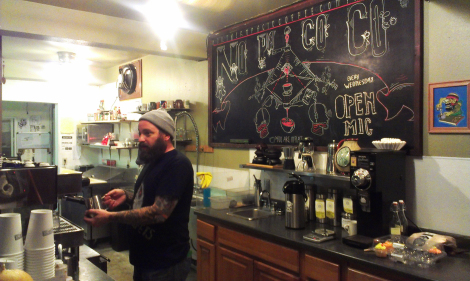Like many PLU students, sophomore Taylor Hardman reads the posts on P.L.U Confess, a Facebook page that allows students to anonymously post confessions.
Hardman was shocked when she read her name in a post.
The anonymous post said, “I think Taylor Hardman needs to leave this school.”
This was the first anonymous post on Facebook that had ever named Hardman.
“It was surprising, but I didn’t really care,” Hardman said. “I’m not really someone who cares what other people think about me.”
Since this post, many students have posted in defense of Hardman. They argued personal attacks should not be allowed on the page.
Hardman agrees. “When you start letting people confess things about other people, it gets dangerous very quickly,” Hardman said.
Before this post, senior David Leon was the admin for the page. Of all the PLU confession page admins, Leon was the first to disclose his identity. He did this because of how well known he is on campus.
When creating the page, Leon felt the page “would provide a lot of people who needed comfort someone to confide in.”
Leon had commented on many posts on other confession pages, which are now inactive.
Leon posted every confession he received, regardless of the content; posts didn’t need to be true.
“I didn’t see the purpose in [censorship],” Leon said. “I wanted people to realize that sometimes people say mean things.”
However, Leon would remove a post if asked by the person named, which happened a few times.
“[Negative posts] only have power if you give them power. If you ignore them, they go away,” Leon said.
However, Hardman recalled a post on a different page that told a girl to kill herself.
“If that happened to someone right on the edge, that could be something that would easily set someone off,” Hardman said.
Before the post that targeted Hardman, Leon stepped down as admin and let a close friend, who will remain anonymous, take over. A post explaining this appeared when students asked for a new admin, but after the post about Hardman.
Students in favor of a new admin argued posts should be censored and there should be no be personal attacks.
Other students argued this was a freedom of speech issue.
“The fact that people prefer censorship to freedom of speech and expression makes me a very sad panda,” one anonymous post said. “People really can’t handle the truth.”
However, PLU has a policy concerning free speech.
In general, PLU embraces freedom of expression. However, it can be limited. The student code of conduct says, “this freedom of expression does not, however, entail the freedom to threaten, stalk, intimidate, harass, or abuse.”
The code of conduct applies to all students, regardless of whether or not they are on campus.
Ray Lader, associate director for student rights and responsibilities, said he was unsure, under PLU policy, whether the admin for the page or the person who submitted the post is responsible for the negative posts, but leans more to the person who submitted the post.
Regardless, it would be next to impossible for PLU to enforce the policy, he said.
“When we don’t know who’s saying things, it’s hard to do anything about it,” Lader said. “We can’t address it.”
Lader suggested students should report the post to the admin or Facebook. Leon has removed posts in the past after being asked.
If there are enough reports to Facebook, then there could be reason for Facebook to take the page down, but PLU can’t do much about it without getting law enforcement involved.
Lader also suggested to avoid the posts. “If you keep going back, it will keep you infuriated,” he said.
PLU does not actively monitor the page or look for harmful posts, even though the university is aware of the page.
“We leave it to the community to self-regulate first,” Lader said. “If it gets out of control, then people report.”
There have been no reports to PLU about any of the anonymous pages.
Since the post about Hardman, no other posts had names. However, some people may still be identifiable.
Hardman is worried negative posts, if continued, could cause damage.
“The problem is once it becomes okay once, then it becomes okay a second and third and fourth time,” Hardman said in a post on P.L.U Confess. “[When you post negative posts anonymously], you start messing with people’s reputations and it never comes back to you.”




















